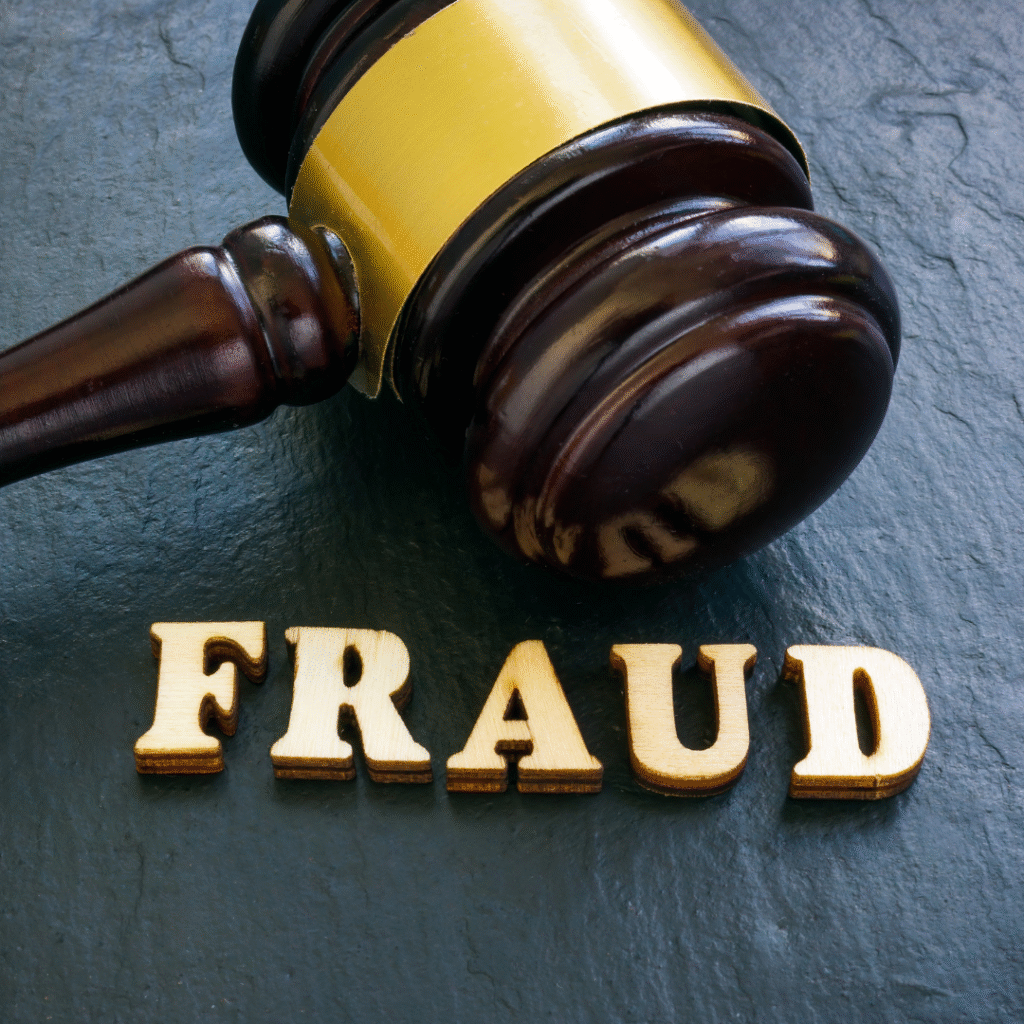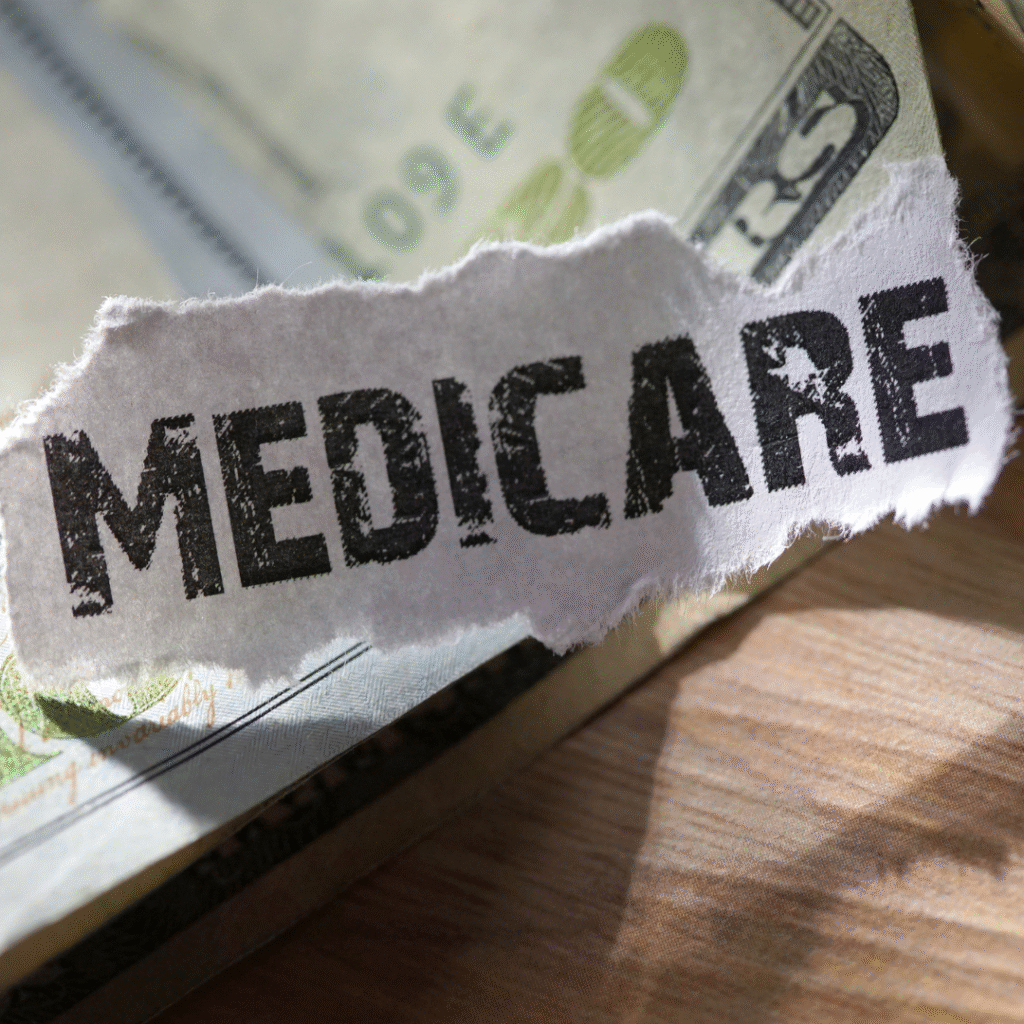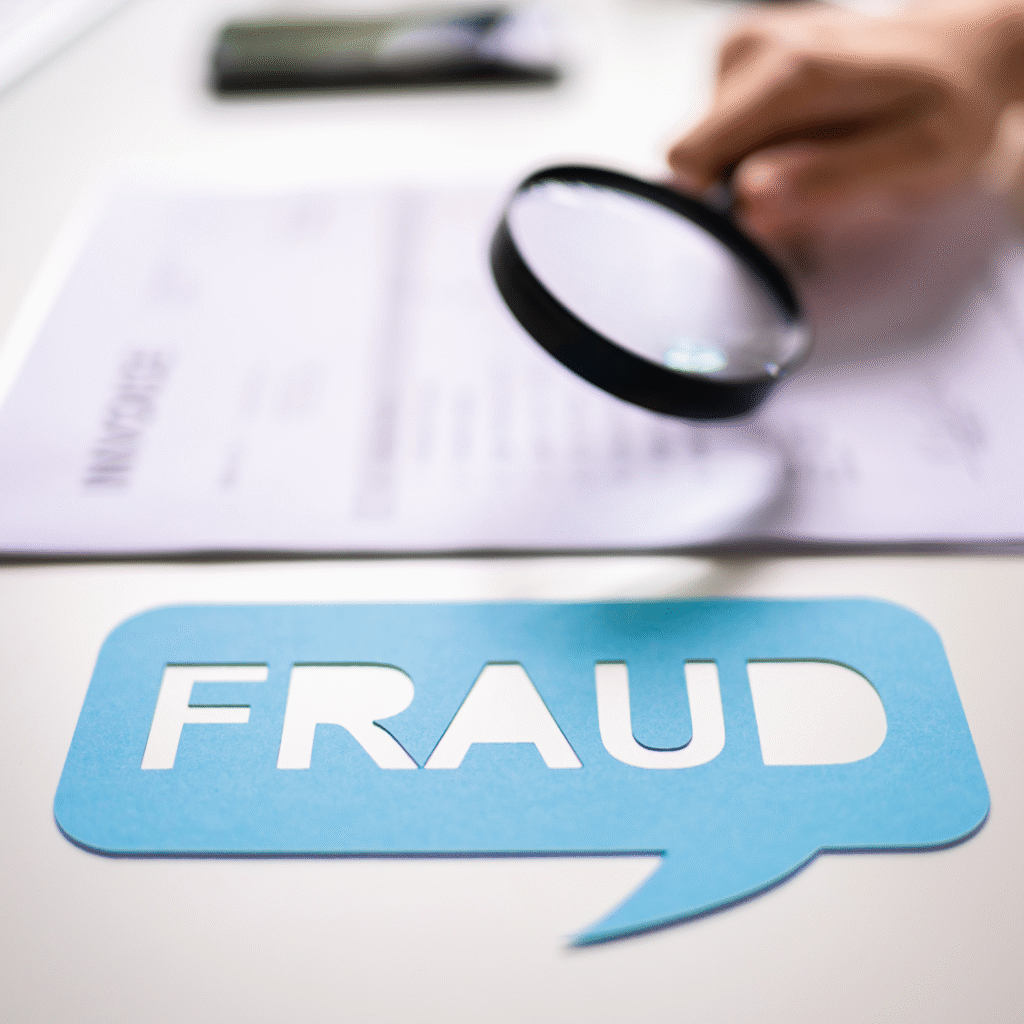Pennsylvania Hospital Fraud Suits Blocked by $19M Deal, Court Rules

September 2, 2025 | JacobiJournal.com — Pennsylvania hospital fraud suits have been barred after a federal appeals court upheld a $19 million settlement that resolved long-running allegations of improper Medicare and Medicaid billing. The ruling closes one of the most closely watched healthcare fraud disputes in the state, where whistleblowers had accused the University of Pittsburgh Medical Center (UPMC) and affiliated physicians of manipulating billing practices to inflate reimbursements. At the heart of the Pennsylvania hospital fraud allegations were claims of unnecessary cancer treatments, double billing, and improper coding that prosecutors argued cost taxpayers millions. By affirming the settlement, the court not only finalized the financial recovery but also effectively shut down future lawsuits tied to the same conduct. Legal experts note that this decision sets an important precedent for how federal courts may treat overlapping whistleblower cases, narrowing the path for additional litigation once a global resolution has been reached. UPMC Accused of False Claims and Improper Billing A three-judge panel of the Third Circuit ruled that the agreement, reached between federal prosecutors and the University of Pittsburgh Medical Center (UPMC) along with certain physician groups, precludes further whistleblower claims tied to the same allegations. The court emphasized that the $19 million settlement was intended to bring closure to years of litigation surrounding improper Medicare and Medicaid billing practices. By ruling in favor of UPMC, the panel effectively confirmed that all overlapping claims related to the alleged misconduct were absorbed into the federal settlement. The panel’s decision reflects how Pennsylvania hospital fraud cases are increasingly resolved through comprehensive agreements rather than piecemeal litigation. Prosecutors argued that allowing additional whistleblower suits to proceed would create duplicative claims and undermine the finality of negotiated settlements. For UPMC, the outcome provides certainty after years of scrutiny, while for whistleblowers, it raises concerns that valid claims may be sidelined when folded into broader fraud resolutions. Whistleblowers’ Claims Swept Into Settlement The panel rejected arguments from relators who sought to continue separate lawsuits, holding that the settlement fully released the claims under the False Claims Act (FCA). “The $19 million deal covered the same alleged conduct, and duplicative litigation cannot proceed,” the opinion stated. The court reasoned that permitting additional lawsuits would not only risk conflicting judgments but also erode the purpose of negotiated fraud settlements, which are designed to bring finality and conserve judicial resources. For the whistleblowers, however, the ruling was a significant setback. Many had argued that their Pennsylvania hospital fraud claims involved distinct billing schemes or different time periods that deserved independent review. Yet the judges determined that the settlement’s broad scope encompassed all such allegations, leaving no room for separate recovery. This outcome illustrates the tension between incentivizing insiders to report fraud and the government’s preference for resolving healthcare disputes through comprehensive settlements. Tension Between Whistleblowers and Finality Federal prosecutors emphasized that the settlement was a significant recovery for taxpayers while allowing UPMC to avoid admitting liability. However, whistleblowers expressed concern that the ruling may discourage insiders from coming forward if their claims are swept into broad settlements without additional payouts. Prosecutors countered that the $19 million resolution delivered meaningful accountability for alleged misconduct while avoiding the uncertainty of protracted litigation. Critics argue that the decision highlights a recurring problem in Pennsylvania hospital fraud cases: whistleblowers often take substantial risks in exposing wrongdoing but may receive little or no recognition when their claims are folded into global settlements. Legal analysts note that this dynamic could weaken the incentive structure of the False Claims Act, which was designed to reward insiders who help uncover fraud. As a result, the case underscores the delicate balance courts must strike between achieving finality for institutions like UPMC and maintaining strong protections for whistleblowers who reveal systemic healthcare fraud. DOJ’s Focus on Healthcare Fraud The case highlights the growing tension in False Claims Act litigation between rewarding whistleblowers for exposing fraud and providing finality for institutions accused of misconduct. The ruling further signals that federal courts may take a narrow view of relators’ ability to press claims after a global settlement has been reached. This trend could directly affect how Pennsylvania hospital fraud cases are litigated in the future, with courts showing increased deference to comprehensive government settlements that cover broad categories of alleged misconduct. For context, the Department of Justice recovered more than $2.7 billion under the FCA in fiscal year 2024, with healthcare fraud accounting for the majority of cases. Officials have repeatedly stressed that enforcement against hospital systems remains a top priority, particularly where Medicare and Medicaid billing abuses are involved. The Pennsylvania hospital fraud suits against UPMC serve as a reminder that even large institutions remain under scrutiny, but final settlements may limit how far whistleblower claims can proceed once the government has secured a resolution. Read the DOJ’s latest False Claims Act statistics. FAQs: Pennsylvania Hospital Fraud Suits What were the Pennsylvania hospital fraud suits about? They involved allegations that UPMC and affiliated doctors submitted false Medicare and Medicaid claims for unnecessary cancer treatments and improper billing. Why did the appeals court block further lawsuits? The Third Circuit ruled that a $19 million settlement already resolved the claims, preventing duplicate litigation under the False Claims Act. What does this ruling mean for whistleblowers? It limits their ability to pursue separate claims if a global settlement has been reached, raising concerns about incentives to report fraud. How does this case fit into national healthcare fraud enforcement trends? It highlights the Department of Justice’s focus on large-scale settlements and its preference for finality in False Claims Act litigation, even at the expense of individual whistleblower actions tied to Pennsylvania hospital fraud. Subscribe to JacobiJournal.com for the latest updates on hospital fraud, healthcare fraud, False Claims Act rulings, and public integrity prosecutions. Stay ahead with expert reporting delivered directly to your inbox. 🔎 Read More from JacobiJournal.com:
DOJ Seeks $11M in Civil Forfeiture Over Miami DME Fraud Case

August 22, 2025 | JacobiJournal.com — Federal prosecutors are moving to seize nearly $11 million in assets tied to an alleged Miami DME fraud scheme that billed Medicare for over $33 million in medically unnecessary equipment. The U.S. Department of Justice (DOJ) says the case highlights a growing enforcement focus on healthcare fraud in the durable medical equipment sector. Miami DME Fraud Involving Unnecessary Billing The DOJ’s civil forfeiture complaint alleges that two Miami-based suppliers submitted false claims for orthotic braces and other devices that patients did not need or never received. Prosecutors say these actions violated federal healthcare fraud statutes and exploited taxpayer-funded programs. DOJ Traces Fraud Proceeds to $11 Million in Assets Investigators allege the targeted funds in this Miami DME fraud case were routed through multiple accounts and shell companies to obscure their origin. The DOJ is seeking to seize the money as proceeds of the fraudulent billing scheme. Federal Crackdown on Miami DME Fraud Schemes The DOJ has intensified enforcement actions against Miami DME fraud operations, citing the sector’s high risk for abuse. Officials say these cases protect Medicare’s financial integrity and deter future fraudulent billing practices. Source: U.S. Department of Justice. FAQs: About Miami DME Fraud What is Miami DME fraud? It refers to schemes in Miami involving durable medical equipment suppliers who bill Medicare for unnecessary or unprovided devices. How does civil forfeiture apply to Miami DME fraud cases? Civil forfeiture allows the government to seize assets tied to the fraud, even without a criminal conviction, if it can prove the connection in court. Why is Miami a focus for DME fraud enforcement? Miami is a high-priority area for fraud investigations due to the concentration of DME suppliers and history of large-scale Medicare fraud cases. Stay informed on major healthcare fraud cases and legal developments. Subscribe to JacobiJournal.com for exclusive updates, expert insights, and in-depth analysis. 🔎 Read More from JacobiJournal.com:
DOJ Seeks $11M in Civil Forfeiture Over Miami DME Fraud Scheme

August 8, 2025 | JacobiJournal.com — The Department of Justice has filed a civil forfeiture complaint to recover nearly $11 million in alleged proceeds from durable medical equipment (DME) fraud involving two Miami-based clinics. Authorities claim that Vida Med Center LLC and Med-Union Medical Center fraudulently billed Medicare for over $33 million in medically unnecessary DME claims between 2020 and 2022. According to the DOJ, the clinics operated a kickback-driven scheme in which patients were prescribed braces and orthotic devices that were not medically necessary and often never delivered. These services were submitted as reimbursable to Medicare using falsified documentation and physician approvals. Civil Forfeiture Sought in DME Fraud Scheme Federal investigators tracked the fraudulent proceeds through multiple financial accounts and shell entities, allegedly used to obscure the origin of the funds. The civil forfeiture action, filed in the Southern District of Florida, aims to recover approximately $10.9 million in assets, including luxury vehicles and real estate tied to the scheme. This case is part of a broader initiative by the DOJ and the Medicare Fraud Strike Force to curb fraudulent billing in the durable medical equipment sector. Authorities say DME fraud schemes frequently exploit vulnerable Medicare beneficiaries and drive up public healthcare costs. Pattern of Abuse in DME Billing Both clinics have come under scrutiny for their roles in a growing pattern of DME fraud forfeiture actions emerging nationwide. The use of deceptive marketing, forged prescriptions, and aggressive billing tactics has led to increased oversight of DME suppliers and prescribing physicians. The DOJ emphasized that civil forfeiture serves as a powerful tool to disrupt financial incentives behind Medicare fraud without waiting for a criminal conviction. What’s Next? The civil action does not require criminal charges to proceed but may lead to future indictments if investigators uncover further evidence of conspiracy or wire fraud. Meanwhile, regulators are urging healthcare providers to tighten compliance protocols and ensure documentation aligns with Medicare requirements. The DOJ’s pursuit of assets in this case signals renewed focus on financial recovery alongside traditional enforcement methods. For more on healthcare fraud enforcement, visit the U.S. Department of Justice Health Care Fraud Unit. FAQs: What to Know About DME Fraud Forfeiture What is DME fraud forfeiture? DME fraud forfeiture refers to the government’s civil action to seize assets gained through fraudulent durable medical equipment billing, even without a criminal conviction. How much was billed in the Miami DME fraud case? The two clinics allegedly billed Medicare over $33 million in fraudulent DME claims, prompting a DOJ effort to recover $11 million in illicit proceeds. Why does the DOJ use civil forfeiture in healthcare fraud cases? Civil forfeiture allows the DOJ to quickly seize assets tied to fraud without awaiting a criminal trial, preserving funds for potential restitution and disrupting ongoing schemes. Never miss an update. Subscribe to JacobiJournal.com for weekly enforcement summaries, case insights, and legal analysis direct to your inbox. 🔎 Read More from JacobiJournal.com:
DOJ Probes $1B UnitedHealth Medicare Advantage Fraud Over Coding Practices

July 18, 2025 | JacobiJournal.com – UnitedHealth Medicare Advantage fraud is at the center of a widening federal investigation. The Department of Justice (DOJ) has intensified its efforts to uncover the extent of the scheme involving UnitedHealth Group, focusing specifically on allegations of inflated diagnostic coding within its Medicare Advantage program. Alongside the FBI and the Department of Health and Human Services (HHS), the DOJ is scrutinizing UnitedHealth’s HouseCalls division, which conducts in-home health assessments for Medicare Advantage enrollees. Authorities suspect that these assessments may have been used to exaggerate patient conditions, leading to increased and potentially fraudulent Medicare reimbursements. Allegations of Upcoding in Medicare Adbvantage Investigators are examining whether UnitedHealth improperly coded diagnoses during HouseCalls visits to exaggerate patients’ health risks. This practice, known as upcoding, can result in higher Medicare reimbursements by portraying patients as sicker than they are. The probe follows earlier whistleblower lawsuits that alleged UnitedHealth and other insurers manipulated coding to secure billions in additional Medicare payments. This latest investigation suggests the DOJ is expanding its scrutiny of Medicare Advantage fraud, an area of growing concern given the program’s rapid expansion and high cost to taxpayers. Compliance Risks for Insurers The UnitedHealth Medicare Advantage fraud investigation underscores the need for health insurers to ensure coding accuracy and compliance with federal regulations. Coding errors or intentional misrepresentations not only inflate government costs but also expose insurers to False Claims Act liabilities and significant financial penalties. Healthcare compliance experts advise insurers to audit their risk adjustment coding processes, enhance provider training, and ensure oversight mechanisms are in place to prevent fraudulent activity. Regulatory Scrutiny on the Rise The DOJ’s focus on UnitedHealth reflects broader government efforts to control Medicare Advantage spending, which has ballooned in recent years. Regulators and lawmakers have increasingly criticized risk adjustment abuses and are considering stricter guidelines for diagnostic coding. Insurers operating in the Medicare Advantage space face mounting pressure to prove that their coding practices are not designed to game the system. As enforcement intensifies, companies must demonstrate a clear commitment to ethical billing and transparent reporting. For a general and legitimate information link on Medicare fraud, you can use this official source. What’s Next in the UnitedHealth Medicare Advantage Fraud Case As of July 2025, the DOJ has not announced formal charges, but sources suggest the investigation is active and could lead to legal action or settlements. The outcome may shape future enforcement strategies against similar Medicare Advantage fraud cases, setting compliance benchmarks for the entire industry. FAQs: Understanding UnitedHealth Medicare Advantage Fraud What is UnitedHealth Medicare Advantage fraud? UnitedHealth Medicare Advantage fraud refers to allegations that UnitedHealth inflated diagnostic codes within its Medicare Advantage program, specifically through its HouseCalls division. This practice, known as upcoding, can lead to higher payments from Medicare by making patients appear sicker than they are. Why is UnitedHealth Medicare Advantage fraud under investigation? The DOJ, along with the FBI and HHS, is investigating UnitedHealth Medicare Advantage fraud to determine if the company violated federal laws by manipulating diagnostic codes. The investigation aims to uncover whether these practices resulted in billions of dollars in improper Medicare payments. What are the consequences if UnitedHealth is found liable for Medicare Advantage fraud? If UnitedHealth is found liable, the company could face substantial penalties under the False Claims Act, including fines, repayment of funds, and potentially stricter regulatory oversight. This could also prompt broader audits of Medicare Advantage plans industry-wide. Where can I report suspected Medicare Advantage fraud? Anyone can report suspected Medicare Advantage fraud to the Office of Inspector General (OIG) here. Timely reporting helps authorities investigate and prevent further abuses within the system. Stay informed on healthcare fraud investigations and Medicare compliance updates. Subscribe to JacobiJournal.com for expert insights on regulatory actions, enforcement trends, and fraud prosecutions. 🔎 Read More from JacobiJournal.com:
Home Health Agency Owner Convicted for $400K in Medicare Fraud via Falsified Records

June 30, 2025 | JacobiJournal.com – A home health agency owner has been convicted in a $400,000 Medicare fraud scheme that involved falsified documentation to claim services never provided. This case adds to the growing list of healthcare fraud prosecutions, particularly in home-based care, a sector increasingly scrutinized by federal authorities. Fabricated Records, Real Consequences in Medicare Fraud The owner directed staff to forge patient records, including visit notes and certifications, to create the appearance of legitimate medical services. These fake claims were submitted to Medicare, resulting in substantial reimbursement for treatments that either never occurred or were medically unnecessary. Investigators found a pattern of deception dating back several years. Systemic Oversight Failure in Medicare Fraud This conviction underscores how documentation abuse remains a persistent vulnerability in the Medicare system. Home health agencies, while vital for aging populations, continue to face enforcement due to weak internal controls and high reimbursement incentives. Prosecutors noted that the scheme not only defrauded taxpayers but also undermined trust in care delivery. A Signal to the Industry Federal officials have reiterated that healthcare fraud—especially involving home health services—will remain a high-priority enforcement area. With billions allocated annually to Medicare, oversight agencies are ramping up audits and encouraging whistleblowers to report suspicious billing practices. Lessons from the Case Industry experts recommend stronger compliance protocols, regular chart audits, and better staff training to prevent similar schemes. Patients and families are also urged to stay informed about services billed under their names to spot potential abuse early. As federal crackdowns continue, the healthcare sector is reminded that cutting corners not only risks legal penalties—it puts patients and public trust on the line. For more information on Medicare fraud prevention, visit the official Medicare.gov Fraud Prevention page. FAQs: What is Home Health Medicare Fraud? Home Health Medicare Fraud involves false claims submitted by home health agencies for services that were never provided or medically unnecessary. This type of fraud undermines the integrity of Medicare funding and patient care. How can patients detect Home Health Medicare Fraud? Patients can review their Medicare statements regularly, ensuring all billed services were actually received. Discrepancies should be reported to Medicare immediately to prevent further fraud. What are the penalties for Home Health Medicare Fraud? Convictions for Home Health Medicare Fraud can lead to significant fines, restitution, and prison sentences, as seen in this case where the agency owner was convicted of defrauding Medicare of $400,000. Stay informed on healthcare fraud cases and compliance strategies. Subscribe to JacobiJournal.com for weekly updates on enforcement trends and industry risks. 🔎 Read More from JacobiJournal.com:
DOJ Indicts Hospice Owners in Fort Bend for Massive $87M Healthcare Fraud

June 25, 2025 | JacobiJournal.com – Fort Bend hospice healthcare fraud remains a growing concern as federal programs face ongoing exploitation. Healthcare fraud continues to plague these systems, with the Department of Justice indicting two hospice owners in Fort Bend County for their alleged role in a $87 million Medicare and Medicaid scheme. The charges, announced in June, involve fraudulent billing practices and falsified patient records that exploited end-of-life care services for financial gain. Fraudulent Admissions and Falsified Records According to the indictment, the defendants enrolled patients who were not terminally ill into hospice programs, contributing to the broader issue of Fort Bend hospice healthcare fraud. They allegedly forged physician documentation and backdated certifications to make those patients appear eligible for end-of-life care. Furthermore, prosecutors claim the group paid kickbacks to doctors and hospital employees to secure fraudulent referrals, deepening the extent of the healthcare fraud scheme. Oversight Failures and Financial Damage The scheme, which ran from 2019 to 2025, went largely undetected until federal audits in 2022 raised concerns about the ongoing Fort Bend hospice healthcare fraud. Despite these early warnings, the fraudulent billing reportedly continued, highlighting significant gaps in regulatory oversight and enforcement mechanisms. Officials state that over $110 million in claims were submitted, with approximately $87 million reimbursed by Medicare and Medicaid. This lapse in oversight not only enabled the fraud to persist but also exposed weaknesses in the monitoring systems meant to safeguard public healthcare funds. Regulatory agencies have since emphasized the importance of more frequent audits, enhanced data analysis, and cross-agency cooperation to identify and stop such healthcare fraud schemes earlier in the process. Patient Harm and Legal Ramifications Many patients enrolled in hospice were unaware of their change in care status, which could have delayed or denied them appropriate treatment. The legal charges include conspiracy to commit healthcare fraud and wire fraud. If convicted, the defendants face decades in prison and millions in asset forfeitures. A Warning for Medical-Legal Stakeholders This case underscores the urgent need for stronger compliance systems in hospice and palliative care. Legal teams, regulators, and healthcare providers must implement better audit protocols and patient verification processes to prevent similar abuses in the future. As healthcare fraud becomes more complex, enforcement and ethical oversight remain critical pillars of patient safety and public trust. Learn more about healthcare fraud prevention efforts from the U.S. Department of Health & Human Services OIG. FAQs About Fort Bend Hospice Healthcare Fraud What is the Fort Bend hospice healthcare fraud case about? The case involves hospice owners in Fort Bend County indicted for fraudulently enrolling non-terminally ill patients into hospice care, forging medical records, and submitting false claims totaling $87 million to Medicare and Medicaid. How does hospice fraud impact patients? Patients may be misclassified as terminally ill without their knowledge, limiting access to curative treatments and appropriate medical care. This can compromise patient safety and care quality. What penalties do the defendants face in the Fort Bend hospice healthcare fraud case? If convicted, the indicted hospice owners could face decades in federal prison, significant fines, and asset forfeiture under healthcare fraud and wire fraud statutes. Stay updated on healthcare fraud enforcement and legal actions. Subscribe to JacobiJournal.com for weekly insights into fraud investigations, regulatory updates, and policy developments. 🔎 Read More from JacobiJournal.com: